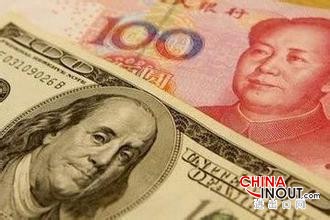
达沃斯传来重磅消息,中国将向外国央行打开境内汇市大门了,这是继7月份央行下文对三类外资机构开放银行间债市后的又一举措,李克强总理在达沃斯论坛上发表演讲时做出表示的。
在美联储引导美元加息后,以及中国央行宣布调整人民币中间价并引发全球汇市动荡的背景下,中国政府再就汇市开放做进一步的调整,意味儿深长。
笔者认为,此举在四个方面需要讨论:
一是此次引入的是各国央行。央行进入汇市一般而言,投机性不强,长线持有人民币的可能性较大,与完全向投机者开放汇市不同,此举并不会引起汇市较大波动。
二是可以进一步推进人民币国际化。在过去几年,央行与各国达成了人民币与各国货币互换协议,有的国家还建立了离岸人民币交易中心,但是,离真正的把人民币纳入储备货币还有更远的路要走,而此次引入各国央行进入中国汇市,是真正迈开了人民币国际化的步子。
三是有助于稳定人民币汇率。在美元加息预期的当下,中国政府采取将人民币开放的举措,可以减缓美元外流速度,甚至因各国央行参与人民币买入而使得国内美元流动性变得更加稳定,防止了美元大幅外流造成的冲击,也减轻了央行维稳汇率的压力。
四是有助于压低国内长期利率。境外以美元进入我国后,会兑换成人民币,并买入长期国债,这有助于压低国债利率,同时压低人民币利率,从长远看,可以降低实体企业贷款利率,利多中国实体经济。
除上述意义外,人民币借此可以在全球流通,进而成长为全球主要储备货币。
从金融市场分析,由于人民币国际化后,直接的效果就是降低了长期利率,降低了企业贷款成本,同时,中国对外贸易由于使用人民币结算,降低了汇兑成本,对实体经济有着显著的提振作用,反映到公司业绩上,存在长期利多,股市或因此大幅上涨。(中国进出口网)
Big news from Davos, China will open the door of domestic foreign exchange market to the foreign central bank, which is another move following China’s central bank’s opening inter-bank bond market to three foreign institutions, Premier Li Keqiang expressed in a speech of Davos.
After the Federal Reserve guided to raise interest rates of the dollar, as well as China's central bank announced the yuan central parity adjustment and triggered the global currency turmoil, in the background, the Chinese government made further adjustments on the foreign exchange market.
I believe that the move needs to be discussed in four areas:
First, the introduced objects are the central banks of other countries. The in the foreign exchange market, the central banks in general, have no strong intention of speculation, and they are likely to hold RMB in the long term, and the move is completely different from opening to speculators, and the move won’t cause greater volatility in currency markets.
The second is to further promote the internationalization of RMB. In the past few years, the central bank reached agreements of currency exchange with other countries, and some countries have also established an offshore RMB trading center, but it’s far from the real reserve currency of the RMB, and this time central banks of other countries enters into foreign exchange market, which is indeed a start of internationalization of the RMB.
Third, to help stabilize the currency. Under the background of US dollar interest rate raise expectations, Chinese government has taken initiatives to open RMB, which could slow the dollar outflow speed, make US dollar liquidity more stable, prevent the impact of the dollar outflow, and also reduce the central bank’s pressure on the exchange rate stabilization.
Fourth, to help drive down long-term domestic interest rates. The offshore dollar enters China, then will be converted into RMB, and will be used to buy long-term government bonds, which will help drive down Treasury rates, as well as undervalue RMB interest rates, in the long run, it can reduce business lending rates, and benefit Chinese real economy.
In addition to the above sense, RMB could take global circulation, and then grow into the world's main reserve currency.
From the analysis of financial markets, the internationalization of RMB can reduce the long-term interest rates and the cost of corporate loans, while RMB settlement can reduce the exchange costs, boost the real economy, and benefit companies, the stock market or therefore rises sharply.











